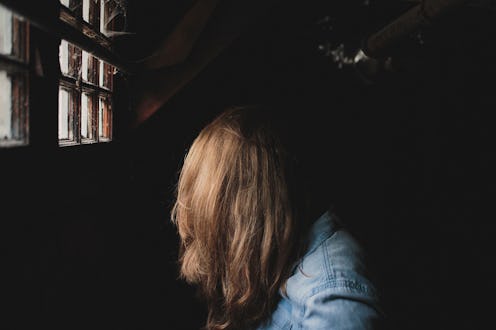News
These Sexual Assault Statistics For People With Intellectual Disabilities Are Alarming
The #MeToo movement shed a light on how pervasive sexual harassment and assault are in the United States and abroad, but the most vulnerable haven't yet become part of the conversation. According to new statistics, people with intellectual disabilities are sexually assaulted at a higher rate than almost any other group. Their stories haven't gotten the same attention as famous actresses', however, and the extent to which they're victimized is just now coming to light.
According to unpublished Justice Department data obtained by NPR, people with intellectual disabilities are sexually assaulted at a rate more than seven times higher than people with no disabilities.
"If this were any other population, the world would be up in arms," Nancy Thaler, a Pennsylvania Department of Human Services deputy secretary in charge of the state's developmental disability programs, told NPR. "We would be irate and it would be the No. 1 health crisis in this country."
A July report from the Bureau of Justice found that people with any type of disability are more than two times more likely to be sexually assaulted than people without disabilities, but there were previously no government statistics on the subject concerning intellectual disabilities, specifically. Because the intellectually disabled rely on others for daily care, often live in group homes or institutions, and can have difficulty with speech, they're especially vulnerable to assault.
A 2011 report published by The Arc, an organization that advocates for the rights of people with intellectual disabilities, explains that those individuals may not understand what constitutes assault or know how to communicate what happened to them:
Others with a less severe disability may realize they are being assaulted, but don't know that it's illegal and that they have a right to say no. Due to threats to their well-being or that of their loved ones by the abuser, they may never tell anyone about the abuse, especially if committed by an authority figure whom they learn not to question.
The Arc's report also points out that those with intellectual disabilities rarely receive proper education around what a healthy sexual relationship looks like, making it difficult for them to know what they should speak up about.
The only other group that faces a similarly high rate of sexual violence is women ages 18 to 24 who aren't in college. They're four times more likely than the average woman to be sexually assaulted, while women of the same age attending college are three times more likely, according to statistics from the Rape, Abuse & Incest National Network (RAINN). Similarly to people with intellectual disabilities, this group is unlikely to report abuse — just 32 percent of non-student women in this age bracket who are abused file a report with law enforcement.
While the newly released statistics alone show rates of sexual assault significantly higher for people with intellectual disabilities, the problem is likely even more common than the numbers let on. According to NPR, the Justice Department data doesn't account for those living in institutions or group homes, where people can be more isolated and vulnerable to abuse. A 1994 study on the abuse and neglect of adults with developmental disabilities — a term encompassing those with intellectual disabilities and other disabilities such as cerebral palsy — found "significantly more abuse in institutions and group homes" than in individuals' homes. This means the estimate that they're assaulted at a rate seven times higher than people with no disabilities could actually be much higher.
In general, most rapes aren't perpetrated by someone who's a stranger to the survivor — only 28 percent, according to RAINN's data — and people with intellectual disabilities are even more likely to be assaulted by someone they know. People with intellectual disabilities are assaulted by strangers just 14 percent of the time, NPR reports.
"I think people take advantage," a 22-year-old woman who was sexually abused by a previous boyfriend told NPR. "They like to take advantage of disabilities ... which is wrong. I hate that."
As the #MeToo movement continues to call out the violence women experience on a daily basis, every group deserves to be a part of that conversation. Those most affected often have less of an ability to raise their own voices, but that doesn't mean they aren't a huge part of the story.
